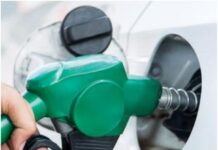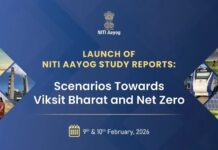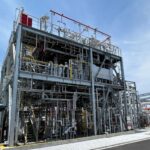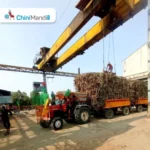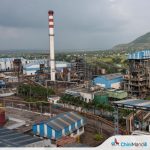In response to the mounting challenges facing India’s ethanol sector, a high-level meeting was recently convened at the Prime Minister’s Office under the guidance of Tarun Kapoor, Adviser to Prime Minister Narendra Modi. The meeting brought together key stakeholders from the bioenergy industry.
The industry delegation was led by Ravi Gupta, Chairman of IFGE’s Sugar Bioenergy Group and expert Member on the Board of National Federation of Cooperative Sugar Factories (NFCSF). Other members included Prakash Naiknavare (Ethanol), Subodh Kumar (Biodiesel & Biomass), Ashish Kumar (Compressed Biogas/CBG), and Tushar Patil (Sustainable Aviation Fuel/SAF). Together, the team presented a comprehensive roadmap aimed at strengthening and expanding India’s ethanol ecosystem. The presentation focused on actionable policy recommendations intended to support industry growth and sustainability.
Key suggestions presented to the government:
1. Revision of ethanol procurement prices to reflect the rising cost of feedstocks like sugarcane, maize, and rice.
2. Extension of blending targets beyond 20%, with a clear, phased timeline up to the year 2035.
3. Accelerated promotion and manufacturing of Flex-Fuel Vehicles (FFVs) to boost ethanol demand and ensure market preparedness for higher blending.
Additionally, the team suggested evaluating the possibility of blending ethanol in diesel as a future strategy to expand ethanol use across fuel types.
According to the National Federation of Cooperative Sugar Factories (NFCSF), the Indian sugar industry has been revitalized through the Ethanol Blending Programme (EBP), which has emerged as a vital solution to the longstanding issue of surplus sugar stocks. The National Policy on Biofuels – 2018 has been instrumental in this progress, setting an ambitious yet achievable target to divert 60 to 70 lakh metric tonnes (LMT) of excess sugar annually towards ethanol production. Since the policy’s inception, India’s ethanol production capacity has expanded significantly—from 518 crore litres in 2018 to 1,800 crore litres in 2025. Correspondingly, the ethanol blending rate with petrol has risen sharply from 4.22% to 18.61% as of 30th April 2025.
“Although there is potential to divert up to 40 lakh metric tonnes (LMT) of sugar into ethanol this year, only 32 LMTs are expected to be diverted. This shortfall is due to the gap between ethanol prices and the better returns from selling sugar directly in the domestic market. As a result, India’s ethanol production capacity of 952 crore litres per year—including 130 crore litres from multi-feed distilleries—is being underused,” NFCSF further stated in a release.





